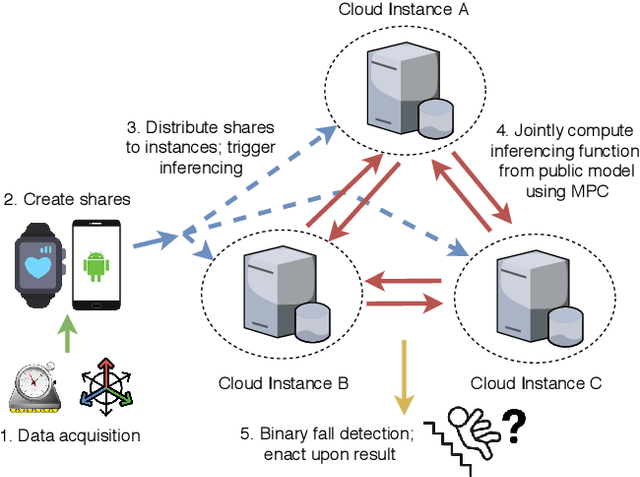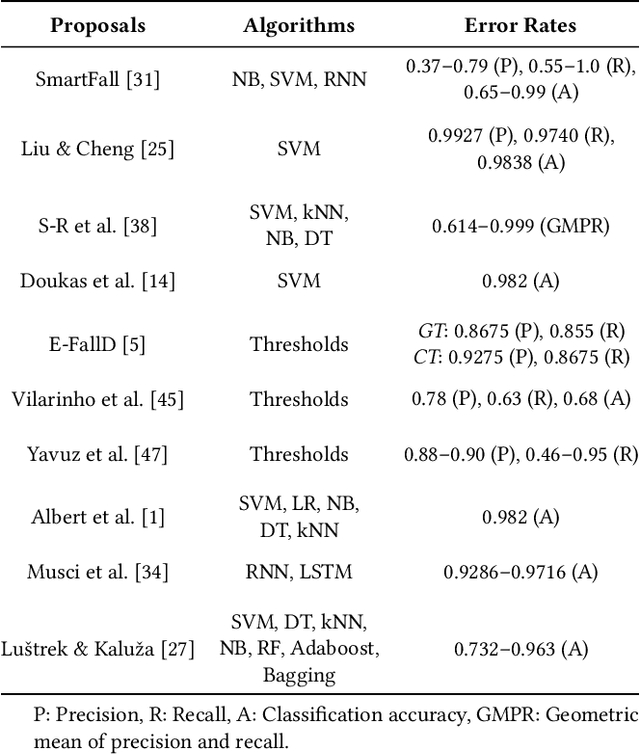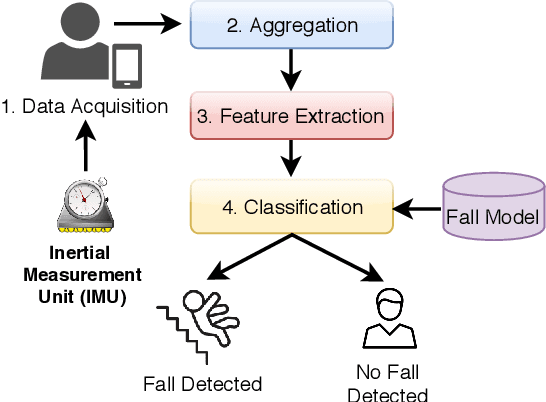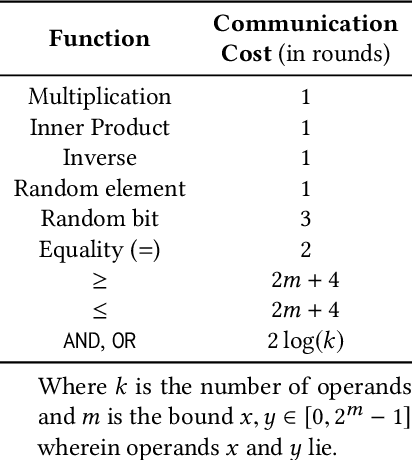Providing Confidential Cloud-based Fall Detection from Remote Sensor Data Using Multi-Party Computation
Paper and Code
Apr 22, 2019



Fall detection systems are concerned with rapidly detecting the occurrence of falls from elderly and disabled users using data from a body-worn inertial measurement unit (IMU), which is typically used in conjunction with machine learning-based classification. Such systems, however, necessitate the collection of high-resolution measurements that can violate users' privacy, such as revealing their gait, activities of daily living (ADLs), and relative position using dead reckoning. In this paper, for the first time, we present the design, implementation and evaluation of applying multi-party computation (MPC) to IMU-based fall detection for assuring the confidentiality of device measurements. The system is evaluated in a cloud-based setting that precludes parties from learning the underlying data using three parties deployed in geographically disparate locations in three cloud configurations. Using a publicly-available dataset comprising fall data from real-world users, we explore the applicability of derivative-based features to mitigate the complexity of MPC-based operations in a state-of-the-art fall detection system. We demonstrate that MPC-based fall detection from IMU measurements is both feasible and practical, executing in 365.2 milliseconds, which falls well below the required time window for on-device data acquisition (750ms).
 Add to Chrome
Add to Chrome Add to Firefox
Add to Firefox Add to Edge
Add to Edge